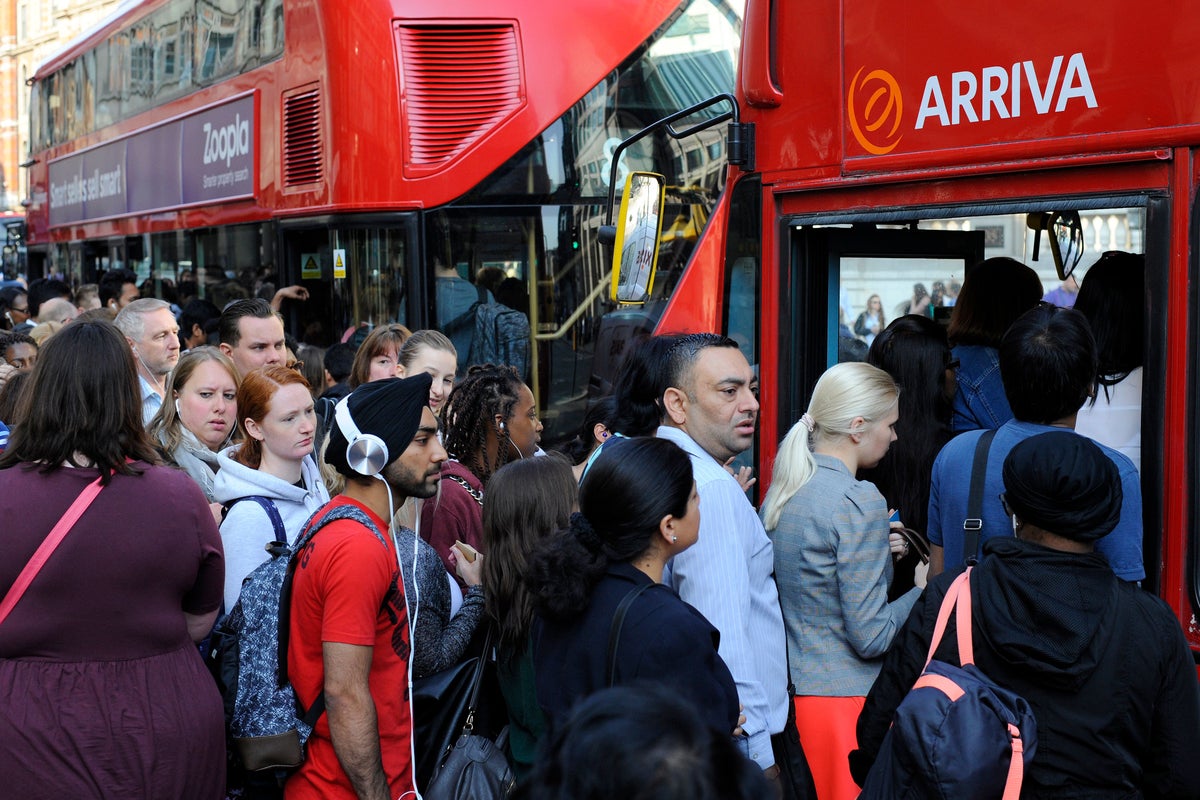
Local bus services in Britain will provide audible announcements and visual displays to improve accessibility for disabled passengers.
Under new rules announced on Thursday, the route and direction of a service, each upcoming stop and any diversions will all be identified, the Department for Transport (DfT) said.
The aids will be introduced as part of vehicle upgrades, with £4.65 million funding being made available to the nation’s smallest bus and coach companies.
Roads and accessibility minister Richard Holden said: “Everyone deserves to take the bus with confidence, and this is a massive boost for passenger independence.
Alongside audio announcements and displays, it’s really important that bus companies ensure their drivers are educated on best practice such as always stopping at bus stops when they see a blind or partially sighted passenger and letting them know the number and direction of the bus— Marc Powell, RNIB
“Simple and effective audible and visible information should be a baked-in feature of a modern bus service to help people reach their destination, wherever they travel in Great Britain.”
Just 30% of buses outside of London currently provide audio-visual information to passengers, the DfT said.
The changes will be implemented over the next few years, with almost all vehicles required to comply by October 2026.
Marc Powell, accessibility innovation lead at the Royal National Institute of Blind People, said: “This is a great step forward in the right direction, but there is still lots more to be done within travel and transport to make journeys more accessible for us.
(This will) open up opportunities for people with sight loss to live independently— Tom Wright, Guide Dogs
“Alongside audio announcements and displays, it’s really important that bus companies ensure their drivers are educated on best practice such as always stopping at bus stops when they see a blind or partially sighted passenger and letting them know the number and direction of the bus.
“We urge all bus companies to sign up to RNIB’s bus charter and make the ‘stop for me, speak to me’ pledge.”
Tom Wright, chief executive of Guide Dogs, said the charity is “delighted” with the announcement, with the move able to “open up opportunities for people with sight loss to live independently”.
In July 2018, the Government published its inclusive transport strategy with a commitment to make services fully accessible and equal for all passengers by 2030.
One of the strategy’s five main themes was “ensuring that transport operators provide travel information in formats that all passengers can easily access and understand, before and during a journey”.
A national bus strategy for England was announced in March 2021 and outlined how £3 billion of funding would be used to increase services and usage, before 31 areas were chosen by the Government for further funding last year.





